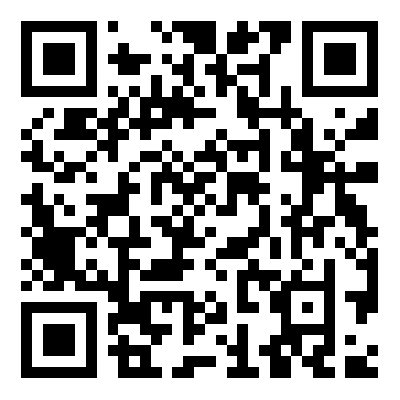
The first "New Green Cup" Information and Communication Industry Empowering Carbon Peak and Carbon Neutralization Innovation Competition was sponsored by China Information and Communication Research Institute (hereinafter referred to as "China Information and Communication Institute") and co-organized by the Carbon Peak and Carbon Neutralization Development Center of China Information and Communication Institute and China Post International Exhibition and Advertising Co., Ltd., focusing on the information and communication industry's empowerment of vertical areas of energy conservation and carbon reduction and its own energy conservation and carbon reduction. There are a total of seven competitions. ###collection time January 6-March 31, 2023
###collection scope
The information and communication industry empowers vertical areas of energy conservation and carbon reduction including three competitions:
Event 1: Digital technology empowers the green and low-carbon transformation of the industry. Model innovation and application practice for digital technology to empower low-carbon transformation in key industries, focusing on the coordinated development of digitalization and green in key industries, reflecting digital transformation scenarios in equipment, processes, recycling, management and other aspects, including but not limited to: power, Steel, nonferrous metals, building materials, papermaking, petrochemicals, aviation, cement, construction, glass, ceramics, agriculture and other fields.
Event 2: Digital technology empowers residents to live a low-carbon and environmentally friendly life. Various application practices for digital technology to help residents achieve a green life, including but not limited to: applications to improve residents 'travel efficiency; applications to assist in green packaging design and low-carbon zero-carbon distribution; promoting online office, online medical care, information Consumption and other applications; relying on platforms, apps and other innovative designs for green consumption promotion, green point redemption and other applications; providing discounts, rewards, transactions and other service applications for recycling of used domestic goods.
Event three: Digital technology empowers green and smart development in urban and rural areas. The application practice of digital technology to help urban and rural green smart development includes but is not limited to participating in the provision of technical solutions such as urban and rural carbon footprint perception, carbon neutral digital signage, and carbon neutral deduction; participating in urban and rural environmental monitoring and management, urban and rural green energy-saving system development, and grassroots community smart service micro-complex construction, zero-carbon smart parks and smart buildings construction.
The information and communication industry's own energy conservation and carbon reduction direction includes four events:
Event 4: Green data center. Entries must include data center elements. Green and low-carbon solutions and application practices in the data center field, including but not limited to data center green and low-carbon technology research and development results, technology application cases, green and low-carbon products, green design/energy-saving transformation plans, green energy utilization, etc., involving computer room cooling and cooling, power supply systems, energy-saving and water-saving technologies, energy recycling, IT energy conservation, code greening, energy consumption monitoring and other aspects.
Match 5: Innovative application of green energy in the information and communication industry. It is aimed at innovative solutions for enterprises in the process of green power consumption and technological innovative applications in the process of green energy promotion. Including but not limited to solutions such as self-built cable lines, bilateral transactions, and purchase of green power certificates to increase the proportion of green power in enterprises; integrated applications such as lithium batteries, hydrogen fuel cells, new energy storage technologies and power supply and distribution technologies in the promotion of green energy, innovative applications such as smart photovoltaics.
Event 6: Co-construction and sharing of communication infrastructure. Participating projects must contain co-construction and sharing elements, facing communication infrastructure co-construction and sharing cases and advanced application models. Including but not limited to innovative practices of co-construction and sharing among industry enterprises in pipelines, poles, optical cables, computer rooms, room divisions, etc.; two-way open and shared application of resources such as pipe holes, towers, and station sites between the information and communication industry and municipal, transportation, public security, and electric power fields; large-scale deployment of outdoor integrated cabinets, smart light poles and other resource-sharing carriers.
Event 7: Green supply chain for information and communication industry. Solutions for industrial chain supply chain collaborative manufacturing and green procurement demonstrations. Including but not limited to strengthening the research and development of energy-saving and emission reduction technologies, upstream and downstream enterprises collaborating to carry out application practices in the design, production and use of green products; comprehensively considering factors such as energy efficiency of equipment and facilities, green manufacturing processes and service life, and developing green procurement systems, processes, Innovate management mechanisms such as standards, testing and verification to promote the application practice of procurement of green and low-carbon products and services.
###Registration method
(1) Participating units can register for the competition through the official website of the competition at http://xinlv.caict.ac.cn/or scan the QR code below. After successful registration, download the corresponding entry template (the template can be downloaded from the document download section of the website after registration), and enter the registration page to submit the application project.

(2) The application project materials cannot be modified or deleted after being submitted for review. Participating units are requested to confirm that the project information is filled in correctly before submitting the application. (3) The same item cannot be declared repeatedly. After duplicate checking, the item that has been declared repeatedly will be deleted, subject to the last submission.